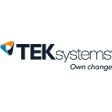Huawei Canada has an immediate permanent opening for a Compiler Engineer.
About the team:
The Heterogeneous Compiler Lab, led by esteemed technical experts with extensive
industry and academic experience, publishes innovative research at leading
conferences. Recognized as key contributors to the LLVM Compiler Infrastructure
project, this lab excels in developing diversified IP compiler collaborations,
focusing on AI, GPU, and CPU architectures. Our efforts include heterogeneous
compilation technology and SW-HW co-design, optimizing for AI, graphics, games,
and mobile applications while tackling technological challenges through
open-source community.
About the job:
-
Design, develop, and test software to satisfy business requirements in a wide
range of products, possibly including (but not limited to):
-
Compilers targeting next-generation mobile, network, or server hardware;
-
Language runtimes for new programming languages;
-
System-level optimization of deep learning frameworks;
-
Concurrent programming frameworks and distributed systems that can scale
from embedded devices to cloud services.
-
Analyze and optimize software system performance.
-
Actively participate in scrums and project planning; be a team player.
-
Learn and adopt new technologies; research, survey, and present industry
trends to the team.
About the ideal candidate:
-
3-5 years of experience programming in large software projects with at least
one of the following: C++, C, or Java.
-
Satisfy at least two of the following:
-
Development or research experience in a production compiler
(LLVM/Clang-based is an asset).
-
Development or research experience in a production language runtime
(JVM-related is an asset), and/or design and implementation of a major
programming language.
-
Development or research experience with deep learning frameworks and
related ecosystem, such as TensorFlow, Caffe2, MXNet, ONNX, TVM.
-
Development or research experience with hardware accelerators such as GPUs,
NPUs, or FPGAs.
-
Solid grasp of fundamental concepts related to system design, such as data
structures, algorithms, and operating systems.
-
In-depth understanding of computer processor architecture.
-
Proficiency with software development tools and concepts such as source
control, bug tracking, etc.
-
Bachelor's, Master's degree or Ph.D. in Computer Science, Computer
Engineering, or related field.
-
Deep understanding of IR and machine level compiler optimization techniques
is an asset.
-
Experience in systems programming is an asset.
-
Proficiency in higher-level programming languages e.g. Go, Python is an
asset.
-
Experience contributing to open-source projects, and demonstrated influence
in the open community is an asset.
-
Working knowledge of agile methodologies.
LI-CL1



